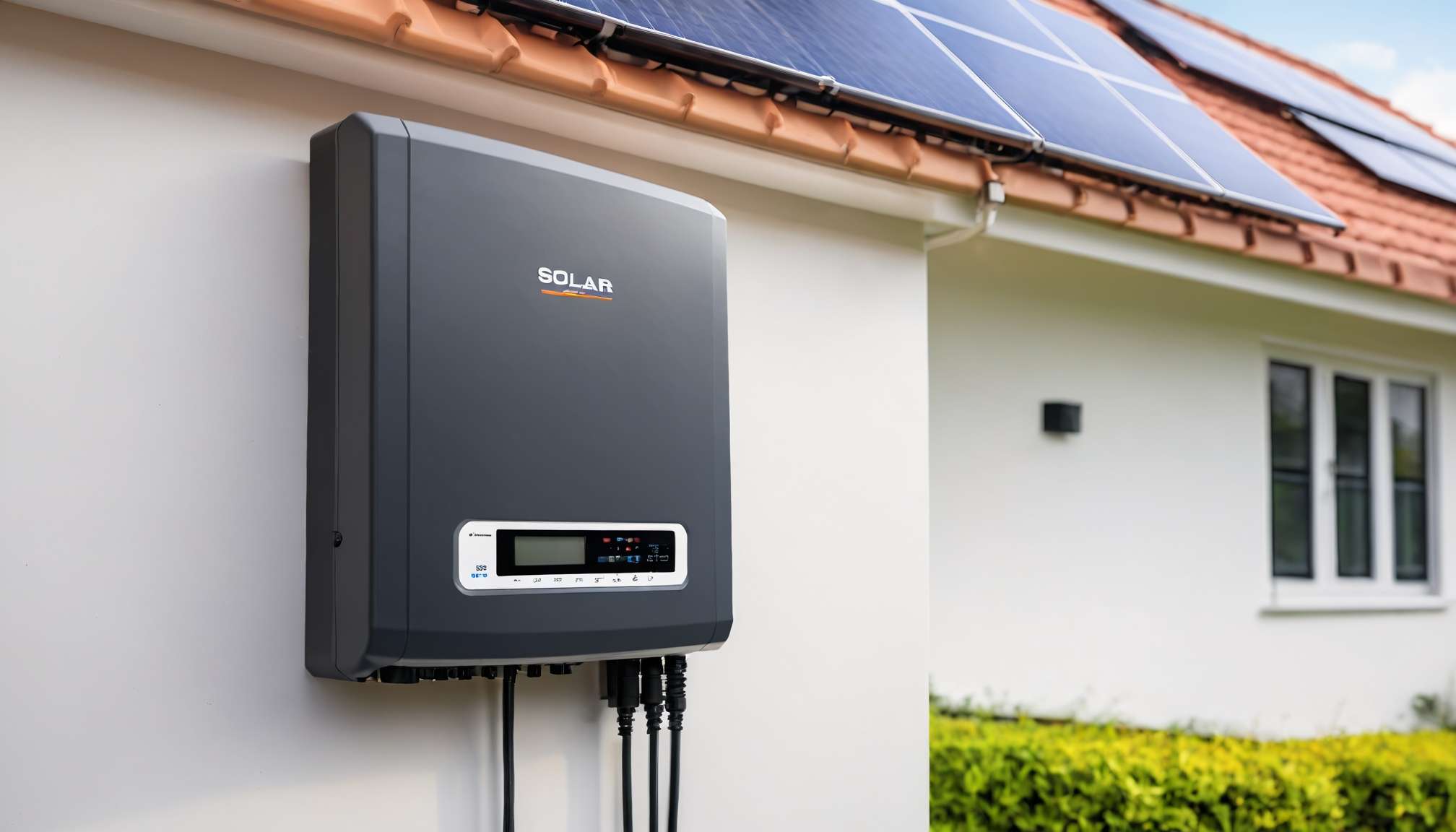
Oct 8,2024
The world is going solar, and every household might use sustainable energy in the future. The reason behind this is the numerous options users have now that were not available in the past decades. To make the best out of it, one has to avoid mistakes to get the best solar inverter for their homes and offices. Following these methods can reduce the chances of making mistakes during selection.
Not all solar inverters are the same, and this is where people might make mistakes in the selection process. If they choose the wrong type, many problems will follow later. So, they must know how to select a solar inverter, and here is a simple way to do that. You need to break down the need with the type of inverter. There are different types available for different requirements.
These three types are common in industry. In simple language, here is how they can be described.
● A grid-tie inverter is connected to the grid for excessive supply, but no backup exists. Excessive energy production will be supplied to the grid. You can't store it anywhere. It is like the live usage of solar energy.
● An off-grid inverter is not connected to a grid, so you can't supply excessive energy to the grid. Instead, you have batteries to store energy for later use. This type is expensive because batteries are involved.
● A hybrid is a combination of both, where the grid and batteries are connected. You can store energy in the batteries and supply excessive ones to the grid.
Now, you can decide which one suits your needs.
Also, there are subcategories of inverters, which depend on the user requirements. The string inverter is the basic and the oldest version. However, the battery-based inverter is the latest one. You will have to decide accordingly. Their cost also rises as you reach the better version.
● String inverter
● Microinverter
● Central inverter
● Hybrid solar inverter
● Battery-based inverter
The batteries must be compatible with the inverters. If you choose batteries of large sizes with smaller inverters, you will have problems. Also, if you do vice versa, you will have problems. It would be best to decide the battery limit according to the number of appliances you use. If a solar inverter is not large enough, you can not use large appliances. The inverter will not be able to store enough energy for the appliances because of poor compatibility.
When choosing a solar inverter, the load assessment is important. It is similar to the above section. Using a smaller inverter for a more significant number of appliances will heat it up. Also, it will not be able to fulfill the requirements of appliances. If an inverter has a limit of 5 KW, you can not run appliances that exceed the limit. That will affect the inverter's performance and cause other technical problems.
The placement of solar inverters also affects their performance level. You can not just randomly select a place for installation. To save the inverters, you will have to take different safety factors into account. Since it is an electric device, you must keep the temperature below the extreme level. People who place solar inverters in the wrong places may face the problems below.
● Lack of ventilation
● High moisture in the surroundings
● Direct exposure to sunlight
You are not supposed to make mistakes here. It is better to choose an expert who knows the grounding setup. Incorrect grounding can lead to electric shocks, fire accidents, etc. People not following expert advice may have incorrect grounding, which can risk human and animal lives. Call an expert who can install a solar inverter because of its sensitivity.
People may have a similar problem. That is improper wiring, which can damage appliances and batteries and lead to accidents. Wrong or inappropriate wiring can cause overheating, sparks, and even fire. Not using the right type and size of wires in the solar inverter's installation process can be lethal. The batteries may overheat, or even the inverter can be seriously damaged. Continuous sparking takes place when there is a problem in the wiring.
People who ignore local regulations may face legal problems. Also, they can put everyone's lives at risk. Each area has some energy supply limits, whether residential, commercial, or industrial. The local government issues laws regarding the installation of solar panels and inverters. Higher limits can cause disturbance for many factors like grid capacity, appliance capacity, and property structure. Not complying with those laws can lead to several problems for you.
There are usually five types available in the industry. Each next model is better and costlier than the previous one.
1. String inverter
2. Microinverter
3. Central inverter
4. Hybrid solar inverter
5. Battery-based inverter
Yes, all solar panels require inverters. Since all appliances can not run on DC electricity, they need an inverter to convert it into AC electricity. The energy solar panels absorb is in DC form, which requires conversion into AC for appliances.
A hybrid inverter is the best type for home installation. It can operate with or without batteries.
● The string inverter has a series connection, and the microinverter has a parallel connection.
● If a problem occurs in any cell, it affects the performance of the entire string inverter. On the other hand, microinverters do not affect each other's performance when any cell is shaded.
● Microinverters have a longer lifespan than string inverters.
● This makes string inverters cheaper than microinverters.
The critical difference is that a battery-based inverter can not work without a battery, while a hybrid inverter can. However, a battery-based inverter is an expensive option.
Powered ByTradeWheel.com